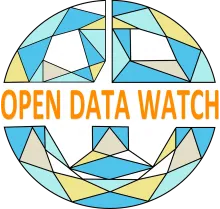The Fourth International Conference on Financing for Development (FfD4) kicked off in Seville, Spain, on June 30. Key players, including world leaders, international organizations, financial institutions, civil society, and more, gathered to chart the path for the next decade of development financing.
FfD4 and the negotiations leading up to it arrived at a pivotal moment for global development. With geopolitical tensions rising, budgets shrinking, and development cooperation programs shutting down, finding solutions to ensure sustainable financing for development is especially urgent.
Data becomes a strategic asset
The final outcome document, known as the Compromiso de Sevilla, sets out agreed priorities and ambitions for reforming the international financial architecture, addressing the cost of borrowing, and scaling up investment for sustainable development. It includes concrete actions for governments and partners on issues like domestic resource mobilization, development effectiveness, debt sustainability, and technology, innovation and capacity development.
A clear point of consensus throughout the FfD negotiations—now recognized in the Compromiso—is that data and statistics are strategic assets and force multipliers for development finance. Smart investments in data help governments raise revenue, manage debt, unlock private capital, and coordinate international assistance.
We recognize that high quality and disaggregated data and statistics enable evidence-based policy decisions and enhance accountability and transparency, fostering public trust and international cooperation. We will support programmes that strengthen national data collection and statistics, especially on sustainable development.
Paragraph 23, Compromiso de Sevilla
To take forward the commitments on data in the outcome document, a coalition of governments, UN entities, and civil society organizations have launched FfD4 and the Future of Data: Strengthening Systems for Sustainable Financing as part of the Sevilla Platform for Action (SPA).
This coalition is rooted in the belief that collective action, building on the foundations of successful data initiatives and partnerships, and increasingly focused on coordination across these efforts, will enable delivery of commitments and priorities for data and statistics within the renewed global FfD framework.
Data as the springboard for development financing
Historically, data and statistics have been viewed merely as a tool for monitoring the FfD framework. The Compromiso de Sevilla changes that. It recognizes that data systems are foundational for driving financing goals by boosting tax revenues, attracting private investment, flagging early signs of debt distress, and ensuring international aid actually gets to where it’s needed most.
Yet despite its potential, data remains underfunded, fragmented, and often treated as an afterthought.
FfD4 and the Future of Data is a landmark commitment that brings data to the center of development efforts. What makes this initiative different is not just what it says, but who’s behind it. Led by Colombia, Norway, and the United Kingdom and endorsed by many other governments, UN entities, civil society organizations, and data alliances, it aims to build forward together, centering national priorities and increasing coordination among institutions and initiatives aiming to strengthen national data ecosystems.
A clear agenda for smarter, action-focused data investment
What does this action look like in practice? It starts with smarter investments. Right now, funding for data systems is often fragmented and lacks a long-term vision. This initiative calls for commitments to better coordination—aligning support with what countries actually need and prioritizing long-term, locally driven solutions. It’s about maximizing every dollar by breaking silos and funding what delivers impact. It’s also about governments taking action to strengthen coordination and data sharing across their own ecosystems.
It also means thinking ahead. Our world is changing fast—climate shocks, AI, digital transformation—and our data systems need to keep up. Future-proofing isn’t a luxury; it’s essential. That means supporting innovations in how data is collected and used, investing in local skills, and making systems ready for technologies we haven’t even imagined yet.
And perhaps most critically, it means political leadership. Too often, data is left to statisticians and IT teams, when it should also be championed by finance ministers and heads of state. The Sevilla Platform for Action puts data at the heart of national strategies—because that’s where it belongs.
Be part of the future of data
What comes next depends on all of us—on governments making bold choices, on donors shifting how they invest, on the private sector stepping up, and on citizens demanding better data for better decisions.
If we’re serious about financing development, we must be just as serious about funding the data that powers it.
Data will inform the future of development. Let’s invest in the systems to make it work.








